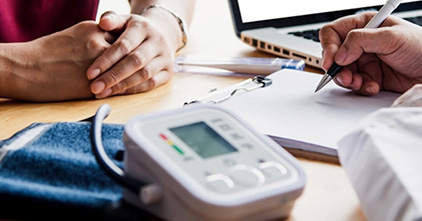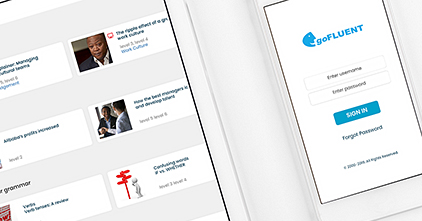
With the right language skills, it’s easier for healthcare professionals to remain globally competitive. Here are some key reasons why.
Why Does Healthcare Need Language?
Language has always been of utmost importance for the healthcare industry. With patients of different ages and nationalities flooding in every second, regardless of where the hospital or clinic is based, responding to their individual needs always starts with communication.
It also means a great deal for hospitals and clinics alike as the quality of their service heightens with the good language skills of their employees.
But how come? Why does language really matter for healthcare institutions? Here are some reasons why:
Responding to patients’ needs starts with good communication
No doctor, nurse, pharmacist, admin staff, or radiologist would want to put their patient in harm’s way. But language barriers do exactly that. To overcome these barriers, healthcare professionals should know how to effectively communicate with their patients.
Healthcare work often requires direct interaction with patients. And for many of them, communicating with patients—whether in person, by phone, or by e-mail—is crucial to the job.
Providing service to patients that acknowledge their language needs is central to meeting their care requirements with respect and dignity.
Plus, being able to provide care in a patient’s native language prioritizes patient safety, promotes a human connection, enhances money-saving efficiency, and decreases liability — all outcomes that employers in this field are seeking, along with the candidates who can deliver them!
This brings us to our next point:
The need for bilingual healthcare is rising
Healthcare providers are better able to serve their patients when they can communicate with them in their native language, which explains the high demand for bilingual employees in the industry.
In fact, a New American Economy report reveals that the demand for bilingual health professionals is one of the highest across all sectors: registered nurses, medical assistants, medical and health services managers, licensed practical and vocational nurses, and medical secretaries, taken together, accounted for almost eight percent of all online job postings for bilingual candidates in 2015.
Until now, more and more bilingual healthcare workers are being sought out.
Why is this so important? It mainly revolves around the quality of care given to the patient. A PMC study even found that language barriers are associated with worse patient care and lower levels of patient satisfaction.
To remedy this, healthcare professionals should know how to understand their patients in their language, to give better and immediate treatment.
It saves not just money, but also time
For years, healthcare professionals have dealt with language barriers by having interpreters. Although this practice has become an efficient means for overcoming miscommunication in hospitals, there is an even more efficient way to move past doctor-patient language barriers: having staff that speaks the language of your patients, preferably a global language.
Any medical professional is bound to encounter patients who speak another language. Why not have a workforce that knows that other language firsthand instead of having to hire or seek the help of interpreters and translators?
Especially with interpreters being extremely expensive, this option is a good way to go.
Not only that, but for medical processes, time is of the essence. In an emergency situation, it is not advantageous to wait for an on-site interpreter to arrive to commence treatment. All the more reason to train or hire people who are already bilingual, or better, multilingual.
It puts patient safety first
In healthcare, the patient and his/her safety greatly matter. Beyond physical injuries, language miscommunications with patients may lead to delays in treatment, patient confusion or alienation, longer hospital stays or readmittance, and sometimes lawsuits.
Patients may have trouble explaining exactly what they are feeling, doctors may not be able to give the best treatment to an illness, prescriptions may be misread and emergencies may not be responded to immediately — all because of miscommunication. Indeed, a lot is put at risk when the need for language skills is treated lightly.
Sadly, there have been many cases of medical errors due to language barriers. Situations in which adverse events and medical errors were most likely to occur are medication reconciliation, patient discharge, the informed consent process, emergency department visits, and surgical care.
That’s why in an industry where lives are at stake, clear and effective communication should be highly valued.
Developing a strong set of language skills through language training courses that center on medical processes and terminologies can help medical and hospital employees provide better care and support for international patients.
Language Skills Matter
In the healthcare industry, where miscommunication and mistranslation can have life-altering consequences, medical workers should possess the necessary language skills to better the situation of the patients under their care. Today, many global companies are equipping their workforce with indispensable communication and language skills. That way, they can deliver the highest quality of care.
This language training will not just serve as support for an individual’s ongoing learning and development, but also train them for worldwide competence. How about you? What measures are you taking to ensure the global success of your employees?



